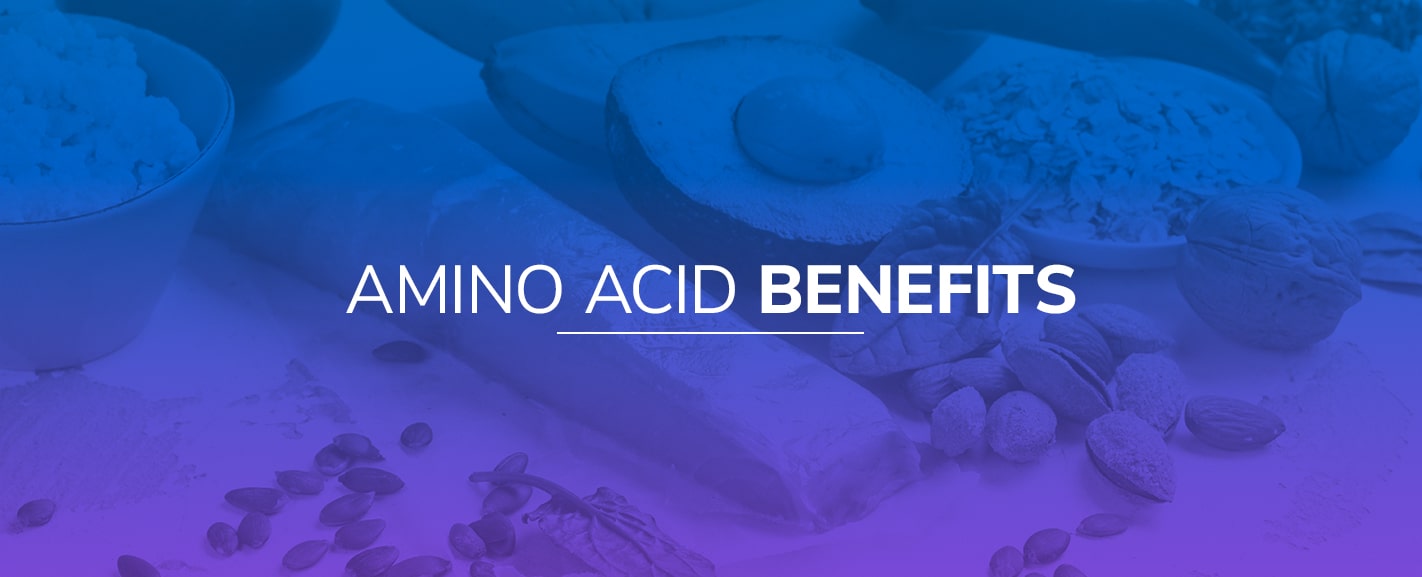Keeping track of all of the tiny molecules that support life on Earth is a bit tricky. However, it’s important to understand how certain elements provide benefits for our well-being. This way, we can aim to be the healthiest versions of ourselves.
If you’re curious about amino acids and how amino acid benefits can help you, continue reading below.
- What Are Amino Acids?
- How Do We Get Amino Acids?
- Benefits of Amino Acids
- Learn More About Mobile IV Medics
What Are Amino Acids?
These are essential molecules that are present in the bodies of all living things. Often, individual amino acids themselves are called protein building blocks because they link together into amino acid chains called peptides to form proteins. By extension, they’re also building blocks that support life.
There are 22 different amino acids — humans use 21 of them for protein synthesis. Those amino acids are divided into essential, nonessential, and conditional categories.
First, nonessential amino acids are ones our bodies naturally produce, including:
- Alanine
- Glutamic acid
- Aspartic acid
- Asparagine
Second, essential amino acids are ones we need to get from food or supplementation, as our bodies can’t produce them on their own. The nine essential amino acids are:
- Histidine
- Valine
- Isoleucine
- Tryptophan
- Leucine
- Threonine
- Lysine
- Phenylalanine
- Methionine
Third, some nonessential amino acids are considered conditional. These amino acids only become the conditionally essential amino acids in circumstances like illness, pregnancy, infancy, and trauma, when our bodies can’t produce enough of a certain amino acid to accomplish certain functions. That’s when amino acid supplementation becomes necessary. The conditional amino acids are:
- Arginine
- Tyrosine
- Cysteine
- Serine
- Proline
- Glutamine
- Ornithine
- Glycine
How Do We Get Amino Acids?
Food including meat, eggs, poultry, edamame, and tofu contain all nine essential amino acids. Thus, they’re complete protein sources. In contrast, incomplete proteins contain some but not all essential amino acids. These include nuts, seeds, legumes, grains, and vegetables. Of course, supplements and IV therapy can also help maintain amino acid intake.
When we eat protein, the digestive system breaks it down into its constitutive amino acids. The body then uses those amino acids to perform various functions. Some of those functions include muscle and dietary protein building, immune regulation, and metabolic function.

Essential Amino Acids Benefits
Whether you get your amino acids from food alone or enrich your amino acid intake with supplements, they benefit almost every aspect of your health and wellness. Let’s walk through the different benefits for your health one by one!
1. Enhance Muscle Recovery and Increase Mass
Leucine, isoleucine, and valine are branded-chain amino acids (BCAA), referring to their structural composition. When you take these amino acids along with other essential amino acids, they have significant benefits for muscle growth, metabolism, and recovery. Your muscles use these and other amino acids together for energy. BCAAs may also promote muscle protein synthesis, leading to increased muscle mass. Isoleucine is particularly saturated in muscle tissue.
2. Maintain Healthy Hair, Skin and Nails
Our bodies use the amino acid threonine to produce collagen and elastin. Collagen and elastin are essential proteins for the structural integrity of our connective tissues. Collagen and elastin keep the skin firm and smooth and provide additional benefits for the hair and nails. Lysine is also essential for collagen production, providing similar benefits to threonine.
3. Promote Cognitive Function and Balance Moods
Two amino acids — tryptophan and phenylalanine — are instrumental in producing neurotransmitters that influence cognitive function, mental health, and overall mood. Neurotransmitters are chemicals produced in the brain that send messages throughout the body to ensure it functions well.
The neurotransmitters that tryptophan and phenylalanine produce include:
- Serotonin: Serotonin, known as one of the “happy hormones” due to its positive impact on your mood, also influences your sleep, appetite, and emotions.
- Dopamine: Dopamine plays a critical role in motivation and reward processes in your brain. It also impacts your sleep, mood, memory, and learning capacities.
- Epinephrine: This neurotransmitter is better known as adrenaline and regulates your “fight or flight” response and metabolism. It impacts your stress levels, ability to concentrate, attentiveness, and emotions of panic or excitement. Your body releases epinephrine when experiencing stress.
- Norepinephrine: Also known as noradrenaline, this neurotransmitter regulates your mood, sleep, behavior, libido, and alertness.
Healthy amounts of tryptophan and phenylalanine promote balanced moods and optimal cognitive function. They can also reduce stress and improve sleep quality and libido.
4. Strengthen Immune Function
Various amino acids are vital nutrients for immune cells, with each essential amino acid performing different functions to strengthen your immune system. Here’s how some essential amino acids contribute to immune function:
- Histidine: This amino acid produces histamine, an important chemical that your immune system uses to protect your body from illness. Although excess histamine can cause allergy issues, healthy histamine levels are essential for fighting off viruses, parasites and other foreign invaders.
- Isoleucine: Isoleucine helps your immune system fight off infection and illness by proliferating host defense peptides (HDPs). HDPs reduce inflammation and bolster your immune system’s response to foreign invaders. Isoleucine also helps cells absorb glucose, which is vital for all proper cell functions.
- Lysine: Research suggests lysine may effectively reduce the rate of recurrent infections, including COVID-19 and herpes simplex virus (HSV).
- Methionine: Evidence shows methionine effectively improves immune response to infection by generating increased virus-fighting cells — lymphocytes — and reducing inflammation.
- Threonine: Threonine has been noted as being essential to the immune function of the intestine and gut, ensuring proper digestion and preventing digestive-related illnesses.
5. Optimize Metabolism and Energy
Besides promoting skin, nail, and hair health and enhancing muscle recovery, threonine and isoleucine also regulate fat metabolism and accumulation. In this way, threonine and isoleucine impact the amount of energy and nutritional value you absorb from the food and drinks you consume. In doing so, these amino acids affect your ability to lose and maintain weight.
While it’s less involved with your fat metabolism itself, valine significantly impacts energy levels. Valine works as a stimulant through extra glucose production for your muscles to use.

Learn More About Mobile IV Medics
Whether you have an amino acid deficiency, a health issue that could use amino acid supplementation, or want to boost athletic performance, Mobile IV Medics can help! We welcome you to learn more about our IV drip services. Our packages include various amino acids, vitamins, minerals, and fluids to support your body through whatever concern or goal you have.
The best part about our IV services is that we bring them to you! Our IV therapy services are 100% mobile, so all you need to do is contact us for an appointment, and we’ll be at your door soon to help meet your needs.





